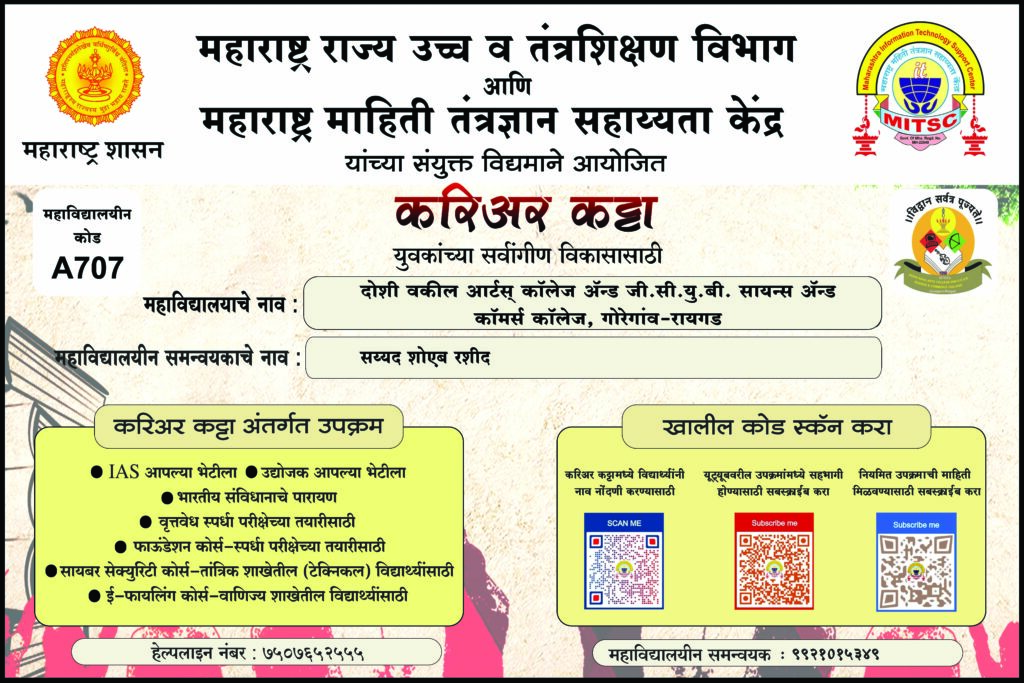There are several institutes of national importance for mathematics. Some of the notable ones are:
- Indian Statistical Institute (ISI): ISI is an institute of national importance that offers undergraduate, graduate, and postgraduate programs in mathematics, statistics, and computer science. It has campuses in Kolkata, Delhi, Chennai, Bangalore, and Tezpur.
- Tata Institute of Fundamental Research (TIFR): TIFR is a research institute that conducts research in various fields, including mathematics. It has campuses in Mumbai, Pune, Hyderabad, and Bangalore.
- Harish-Chandra Research Institute (HRI): HRI is a research institute that focuses on theoretical physics, mathematics, and computer science. It is located in Allahabad.
- Chennai Mathematical Institute (CMI): CMI is a research institute that offers undergraduate, graduate, and postgraduate programs in mathematics and computer science. It is located in Chennai.
- Institute of Mathematical Sciences (IMSc): IMSc is a research institute that focuses on mathematics, theoretical physics, and theoretical computer science. It is located in Chennai.
- The Indian Institutes of Technology (IITs) are a group of premier engineering and technology institutes in India. These institutes are well-known for their high standards of education, research, and innovation in various fields of engineering, technology, science, and management. The IITs were established with the aim of creating highly skilled engineers and scientists who can contribute to the development of India. The first IIT was set up in Kharagpur in 1951, and today there are a total of 23 IITs located in various parts of India, including Delhi, Mumbai, Chennai, Kanpur, Roorkee, Guwahati, and others. Admission to IITs is highly competitive, and candidates are selected based on their performance in the Joint Entrance Examination (JEE) conducted by the National Testing Agency (NTA). The curriculum at IITs is rigorous and challenging, and students are exposed to a wide range of subjects and research opportunities. IITs have produced some of the most successful and innovative engineers, scientists, and entrepreneurs in India and across the world, and they continue to play a vital role in shaping the future of technology and science.
- The National Institute of Technology (NIT) is a group of premier engineering institutes in India that offer undergraduate, postgraduate, and doctoral programs in various fields of engineering, technology, science, and management. The NITs were established with the aim of creating skilled engineers and scientists who can contribute to the development of India. The first NIT was established in 1960 in Warangal, Telangana, and today there are a total of 31 NITs located in various parts of India, including Nagpur, Allahabad, Calicut, Tiruchirappalli, Surathkal, and others.
Admission to NITs is based on the Joint Entrance Examination (JEE) conducted by the National Testing Agency (NTA) for undergraduate programs, and the Graduate Aptitude Test in Engineering (GATE) for postgraduate and doctoral programs. The curriculum at NITs is designed to provide students with a strong foundation in engineering, technology, and science, and to equip them with the skills and knowledge necessary to succeed in their careers. NITs have a reputation for producing some of the most successful engineers, scientists, and entrepreneurs in India, and they continue to play a vital role in shaping the future of technology and science in the country.
- The Indian Institute of Science Education and Research (IISER) is a group of premier institutes in India that offer undergraduate, postgraduate, and doctoral programs in various fields of science and research. These institutes were established by the Government of India with the aim of promoting scientific research and education in the country. The first IISER was established in 2006 in Pune, Maharashtra, and today there are a total of seven IISERs located in various parts of India, including Kolkata, Mohali, Bhopal, Thiruvananthapuram, Berhampur, and Tirupati. Admission to IISERs is based on the Joint Entrance Examination (JEE) for undergraduate programs, and the National Entrance Screening Test (NEST) for integrated master’s and doctoral programs. The curriculum at IISERs is designed to provide students with a strong foundation in science, and to equip them with the skills and knowledge necessary to succeed in their careers in research and academia. IISERs have a reputation for producing some of the most successful scientists and researchers in India, and they continue to play a vital role in advancing scientific research and education in the country.
- The Indian Institute of Science (IISc) is a premier public research institute located in Bangalore, India. It was established in 1909 with the aim of promoting scientific research and education in India. IISc is considered to be one of the top institutions for research and innovation in India. IISc offers undergraduate, postgraduate, and doctoral programs in various fields of science, engineering, design, and management. The institute has several departments and centers that conduct cutting-edge research in areas such as aerospace, biotechnology, computer science, materials science, and more. Admission to undergraduate programs at IISc is based on the Kishore Vaigyanik Protsahan Yojana (KVPY) fellowship program, and the Joint Entrance Examination (JEE) for engineering programs. Admission to postgraduate and doctoral programs is based on national-level entrance exams such as GATE and JAM. IISc has a strong focus on research, and its faculty and students have made significant contributions to scientific research in India and across the world. The institute has collaborations with several national and international institutions, and its research output has been recognized with numerous awards and honors.
- The Indian Statistical Institute (ISI) is a premier academic institution in India that specializes in research, teaching, and application of statistics, mathematics, and computer science. It was established in 1931 in Kolkata, and has since expanded to several other locations in India, including Delhi, Bangalore, Chennai, and Tezpur. ISI offers undergraduate, postgraduate, and doctoral programs in various fields of statistics, mathematics, and computer science, as well as interdisciplinary programs in areas such as ecology, economics, and quality control. The institute also offers several short-term courses and workshops for professionals and practitioners. Admission to undergraduate programs at ISI is based on the Indian Statistical Institute Admission Test (ISIAT), while admission to postgraduate and doctoral programs is based on national-level entrance exams such as GATE and JAM. The institute also offers fellowships and scholarships to meritorious students. ISI has a strong research culture, and its faculty and students have made significant contributions to the development of statistical theory and methods, as well as to the application of statistical techniques in diverse fields such as agriculture, health, and finance. The institute has collaborations with several national and international institutions, and its research output has been recognized with numerous awards and honors.
- The National Institute of Science Education and Research (NISER) is a premier research institution located in Bhubaneswar, Odisha, India. It was established in 2007 by the Government of India with the aim of promoting science education and research in the country. NISER offers undergraduate, postgraduate, and doctoral programs in various fields of science, including physics, chemistry, mathematics, biology, and computer science. The institute also has several research centers that conduct cutting-edge research in areas such as astrophysics, condensed matter physics, and molecular biology. Admission to undergraduate programs at NISER is based on the National Entrance Screening Test (NEST), while admission to postgraduate and doctoral programs is based on national-level entrance exams such as GATE and JEST. NISER has a strong research focus, and its faculty and students have made significant contributions to scientific research in India and across the world. The institute has collaborations with several national and international institutions, and its research output has been recognized with numerous awards and honors.
- The Indian Institutes of Management (IIMs) are a group of premier management institutions in India. There are currently 20 IIMs located in different parts of the country, with the first one being established in Calcutta in 1961. IIMs offer postgraduate and doctoral programs in management, including a flagship two-year Post Graduate Program in Management (PGPM) and various executive education programs. The curriculum is designed to develop leadership and management skills, with a focus on practical learning through case studies, projects, and internships. Admission to the PGPM program at IIMs is based on the Common Admission Test (CAT), which is a national-level entrance exam conducted every year. The selection process also includes a personal interview and a written ability test. Admission to executive education programs is based on different criteria, depending on the specific program. IIMs are known for their rigorous academic programs, world-class faculty, and strong industry linkages. The institutes have produced many successful business leaders and entrepreneurs, and their alumni network is highly regarded in the corporate world.
- The Indian Institutes of Information Technology (IIITs) are a group of premier technical institutions in India that specialize in information technology and related fields. There are currently 25 IIITs located in different parts of the country, with the first one being established in Hyderabad in 1998. IIITs offer undergraduate, postgraduate, and doctoral programs in various fields of information technology, including computer science, electronics, communication, and data science. The curriculum is designed to provide a strong theoretical foundation as well as practical skills through industry collaborations, internships, and research projects. Admission to undergraduate programs at IIITs is based on national-level entrance exams such as the Joint Entrance Examination (JEE) Main and the Common Entrance Examination for Design (CEED). Admission to postgraduate and doctoral programs is based on different criteria, depending on the specific program. IIITs are known for their cutting-edge research in emerging areas of information technology, such as artificial intelligence, machine learning, and data analytics. The institutes have collaborations with several national and international institutions, and their research output has been recognized with numerous awards and honors. The IIIT alumni network is highly regarded in the industry, with many graduates holding leadership positions in top companies in India and abroad.
These institutes are recognized as national importance by the Government of India and are known for their contributions to research, education, and training in mathematics.


















